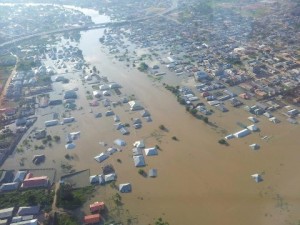Africa will see the most extreme increase in temperatures overall if the world overshoots climate targets, experiencing the highest needs for cooling in a 2.0ºC scenario, according to a new study by the University of Oxford.

For their analysis, the authors used the concept of “cooling degree days,” a method widely employed in research and weather forecasting to ascertain whether cooling would be needed on a particular day to keep populations comfortable. They modelled the world in 60 km grids every six hours to produce the temperature averages in the study, a process that makes the results some of the most reliable globally.
The global analysis concluded that African countries not only had the highest cooling requirements historically, between 2009 and 2018, but will also face the highest surge in heat exposure if the planet warms by 2ºC. The most affected countries will be the Central African Republic, Burkina Faso, Mali, South Sudan, Nigeria, Congo, Democratic Republic of the Congo, Chad, Uganda and Cameroon
According to the study, other countries that are not traditionally prepared for increasing heat will also be severely impacted by rising temperatures if climate targets are missed. Eight of the 10 countries with the greatest relative increase in uncomfortably hot days are expected to be in Northern Europe, with Canada and New Zealand completing the list. Switzerland, the UK and Norway will see an increase of 30% on days with uncomfortably hot temperatures.
The researchers stress that this is a conservative estimate and does not consider extreme events like heatwaves, which would come on top of this average increase.
Dr Radhika Khosla, Associate Professor at the Smith School of Enterprise and the Environment and leader of the Oxford Martin Programme on the Future of Cooling, said: “These conditions will pose further stress to the continent’s socio-economic development and energy networks, issues that require much additional research given the limited studies of this rising threat in the African context.
“It is also a clear indication that Africa is bearing the brunt of a problem they did not create, which should further strengthen calls for climate justice and equity.
“Cooling demand can no longer be a blind spot in sustainability debates.
“By 2050 the energy demand for cooling could be equal to all the electricity generated in 2016 by the US, EU and Japan combined. We have to focus now on ways to keep people cool in a sustainable way.”
Dr Nicole Miranda, Senior Researcher at the University of Oxford and member of the Oxford Martin Programme on the Future of Cooling, said: “Our findings show that nations already facing heatwaves and extreme temperatures, like those in the tropics will see a major increase in extreme temperatures if the global mean temperatures rise from 1.5ºC to 2.0ºC.
“This is particularly true for central African countries, with the Central African Republic, Burkina Faso and Mali suffering the highest increase with more than 250 additional cooling degree days. Extreme heat can lead to dehydration, heat exhaustion, and even death, especially in vulnerable populations. It’s a health and economic imperative that we prepare for more hot days.”
Dr Youba Sokona, Vice-Chair of the Intergovernmental Panel on Climate Change (IPCC), said: “This research shows that no country – from Switzerland to the Central African Republic – is safe from climate change. It should remind us of the need for global solidarity and cooperation in efforts to remain below 1.5ºC warming.
“The extreme temperature increases predicted by this research also are evidence that cooling will soon no longer be a luxury but a necessity across Sub-Saharan Africa. Many African countries are now at an energy crossroads, and meeting increased energy demand for cooling will be a key challenge of sustainable development.”
The Oxford Martin Programme on the Future of Cooling investigates the future of cooling as a dynamic system and examines its interlinkages across Sustainable Development Goals (SDGs) in the developing and developed world. It aims to steer the system towards sustainable cooling for all, and to establish cooling as a global priority for the successful implementation of the SDGs.
